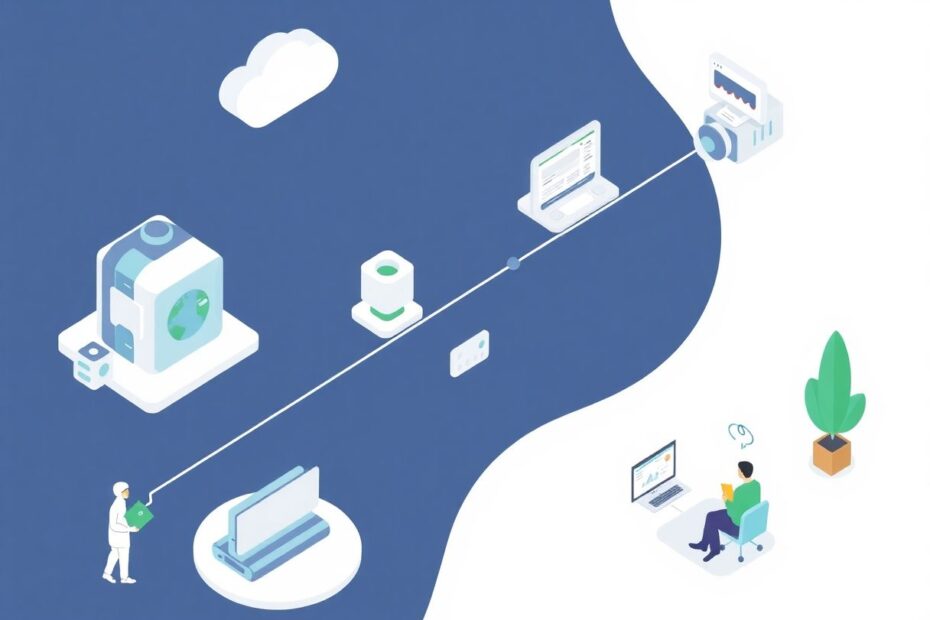In an ever-changing business environment, staying ahead of the curve is crucial for small business owners. As we look towards 2025 and beyond, several key trends are emerging that will shape the future of small business. This comprehensive guide explores these trends, offering insights and strategies to help entrepreneurs navigate the evolving landscape.
1. The Rise of AI-Powered Business Operations
Artificial Intelligence (AI) is no longer just a buzzword – it's becoming an integral part of small business operations. By 2025, AI is expected to be a game-changer in various aspects of business management.
How AI is Transforming Small Businesses
Automated Customer Service: AI-powered chatbots and virtual assistants are handling customer inquiries 24/7, improving response times and customer satisfaction. According to a study by Juniper Research, chatbots are expected to save businesses $8 billion annually by 2025.
Predictive Analytics: Small businesses are using AI to forecast trends, manage inventory, and make data-driven decisions. A report by Deloitte found that 76% of businesses plan to increase their investment in AI for analytics over the next three years.
Personalized Marketing: AI algorithms are creating hyper-personalized marketing campaigns, increasing conversion rates and customer engagement. Research by Epsilon shows that 80% of consumers are more likely to make a purchase when brands offer personalized experiences.
Practical Application
Consider implementing AI tools like:
- CRM systems with AI capabilities for better customer insights
- AI-powered inventory management systems
- Chatbots for your website and social media platforms
"AI is not just for big tech companies anymore. Small businesses that embrace AI early will have a significant competitive advantage in the coming years." – Dr. Sarah Chen, AI Business Strategist
2. The Sustainability Imperative
Sustainability is no longer optional – it's a business imperative. Consumers are increasingly making purchasing decisions based on a company's environmental and social impact.
Key Sustainability Trends for Small Businesses
Circular Economy Models: Businesses are adopting practices that minimize waste and maximize resource efficiency. The Ellen MacArthur Foundation reports that transitioning to a circular economy could generate $4.5 trillion in economic benefits by 2030.
Eco-Friendly Packaging: Sustainable packaging is becoming a norm, not an exception. A study by McKinsey found that 60-70% of consumers would pay more for sustainable packaging.
Carbon Neutrality: More small businesses are pledging to become carbon neutral or even carbon negative. According to the Science Based Targets initiative, over 1,000 companies have committed to net-zero emissions by 2050.
Market Data
According to a 2024 Global Sustainability Report:
- 78% of consumers consider sustainability when making purchases
- 65% are willing to pay more for sustainable products
- 73% of millennials are willing to pay extra for sustainable offerings
Practical Application
- Conduct an environmental audit of your business
- Switch to renewable energy sources where possible
- Implement a recycling program and reduce single-use plastics
- Communicate your sustainability efforts transparently to customers
3. The Evolution of Remote and Hybrid Work Models
The pandemic-induced shift to remote work has evolved into a permanent change in how businesses operate. By 2025, flexible work arrangements will be the norm, not the exception.
Trends in Remote and Hybrid Work
Virtual Collaboration Tools: Advanced platforms are making remote teamwork more seamless than ever. The global collaborative software market is expected to reach $18.3 billion by 2026, according to MarketsandMarkets.
Work-Life Integration: Businesses are focusing on employee well-being and work-life balance. A study by Gartner found that 82% of company leaders plan to allow employees to work remotely some of the time.
Global Talent Pool: Small businesses can now access talent from around the world. A report by Upwork predicts that 73% of all teams will have remote workers by 2028.
Expert Perspective
"The future of work is not about location, it's about results. Small businesses that embrace flexible work models will attract top talent and boost productivity." – Emma Rodriguez, Workplace Futurist
Practical Application
- Invest in robust virtual collaboration tools
- Develop clear remote work policies
- Create a company culture that supports both in-office and remote employees
- Implement performance metrics based on output rather than hours worked
4. The Power of Social Commerce
Social media is rapidly evolving from a marketing platform to a full-fledged sales channel. By 2025, social commerce is expected to be a dominant force in retail.
Social Commerce Trends
Live Shopping: Real-time, interactive shopping experiences on social platforms. According to Coresight Research, the U.S. live-streaming market is expected to reach $25 billion by 2023.
User-Generated Content: Leveraging customer content for authentic marketing. A study by Stackla found that 79% of people say user-generated content highly impacts their purchasing decisions.
**Social-First Strategies
